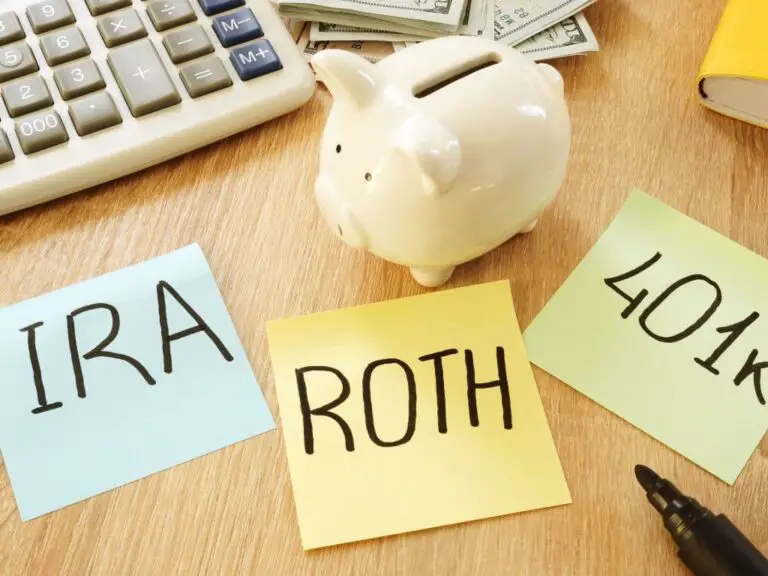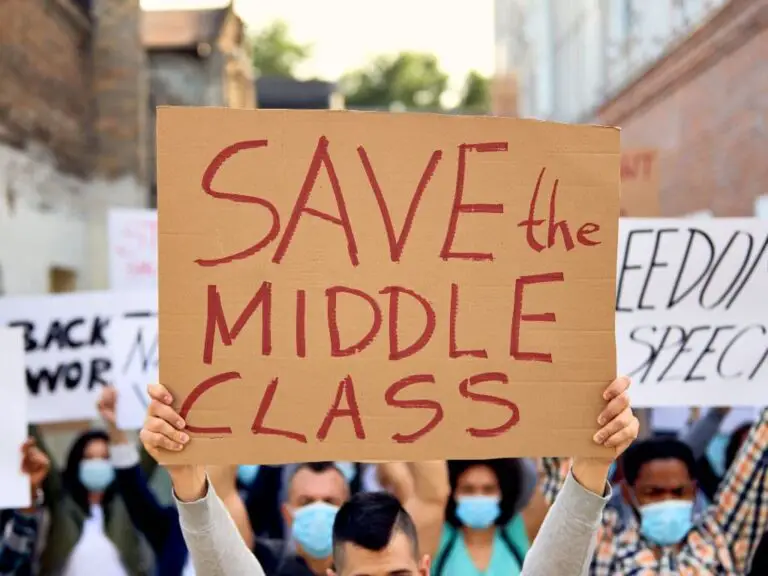Does Florida Have Low Income Housing?
Yes, Florida does have low-income housing. The U.S. Department of Housing and Urban Development (HUD) assists apartment owners in offering reduced rents to low-income tenants. Further assistance is available through Public Housing and Housing Choice Vouchers, commonly known as Section 8. Applications for either of these programs can be made through local Public Housing Agencies (PHAs). Due to high demand, there may be long waiting lists at some PHAs and applicants are encouraged to apply at multiple agencies.
Florida offers additional resources such as the Florida Eviction Prevention Toolkit, the USDA Rural Housing service, and the Florida Housing Finance Corporation. The latter provides low-income housing tax credits for apartment rentals.
There is also a free service, FloridaHousingSearch.org, which allows users to list and search for affordable housing within the state. Assisted Housing Inventory maintains a database of multifamily rental developments in Florida that have received funding to offer affordable units. Independent living centers are another resource, dedicated to seniors and people with disabilities who require aid with housing.
Emergency financial assistance for housing and help with utility bills can also be accessed by individuals in need.

What Are Low-Income Housing Programs in Florida?
Low-Income Housing Programs in Florida are designed to assist residents of Florida who are living on a low-income budget to help them afford safe and sanitary housing. They include the Public Housing and Housing Choice Voucher (Section 8) programs that are managed by local Public Housing Agencies (PHAs).
Public Housing is a program where the government provides affordable homes to those in need, while the Housing Choice Voucher, or Section 8, gives qualified individuals a voucher that can be used to subsidize rent on the private market. Some PHAs in Florida have lengthy waiting lists, thus applicants are encouraged to apply at multiple locations for better chances of receiving aid.
The Department of Housing and Urban Development (HUD) also operates a program in Florida that helps apartment owners offer reduced rents to low-income tenants. Interested applicants can apply directly at the management office of the apartment building that offers subsidized apartments.
In addition, Florida has several other housing resources. These include the Florida Eviction Prevention Toolkit, USDA Rural Housing, the Florida Housing Finance Corporation for low-income housing tax credit apartments, and FloridaHousingSearch.org, a directory for affordable housing in Florida.
The Assisted Housing Inventory is a database maintained by the Florida Housing Data Clearinghouse, providing a list of multifamily rental developments in Florida that receive federal, state, or local funding to offer affordable housing units. Independent living centers are also available to assist seniors and people with disabilities with housing needs.
Emergency financial assistance for housing is available to provide immediate help for individuals and families facing housing instability or homelessness. There are also resources concerning local tenant rights, laws and protections, fair housing agencies, utility bill assistance, and financial planning.
The MyFlorida.com website is an additional resource, offering answers to general questions about living in Florida. All of these programs and resources are in line with the state’s commitment to ensure affordable and decent housing, reduce homelessness, and promote fair treatment for all Floridians, regardless of their income.
Subsidized Apartments
The Subsidized Housing Program in Florida is a range of initiatives aimed at making housing more affordable for specific groups of people such as families, elders, disabled individuals, and those who are homeless. The program is overseen by the Florida Housing Coalition, a nonprofit, statewide membership organization.
A number of different housing interventions are available, including Housing Choice Vouchers (sometimes known as Section 8), the Family Unification Program (FUP), Non-Elderly Disabled (NED) Vouchers, and HUD-VASH program, which aims to assist veterans.
In these types of programs, eligible participants pay only 30% of their adjusted monthly income to the landlord as rent, with the remaining balance subsidized by the state.
Under the Family Unification Program, lack of adequate housing can be used as a trigger for assistance, while youth aged 18-24 who have aged out of foster care (or are about to do so) can also receive time-limited support.
The Non-Elderly Disabled Vouchers assist non-elderly individuals or families with disabilities to access affordable housing on the private market or transition back into community life from health-care institutions.
HUD-VASH rental assistance program targets the most vulnerable veterans, providing them with rental assistance along with continued supportive services provided by the VA.
The state also operates specialized housing for the elderly (Section 202) and for people with disabilities (Section 811), which remain based at a particular site (so the subsidy does not move with the tenant from rental to rental).
The Family Self-Sufficiency (FSS) program provides coaching, case management, financial incentives (through an escrow account), and access to supportive services like childcare, transportation, education, job training, and financial literacy to enable participants to transition to financial independence over the span of five years.
Public Housing
The Public Housing Program in Florida is a system designed to provide safe and affordable rental housing for eligible individuals including low-income families, the elderly, and persons with disabilities. The program offers a variety of housing options, ranging from single-family homes to high-rise apartments tailored specifically for elderly residents.
Administered by various Public Housing Agencies (PHAs), this program adheres to the standard set on the national level, aiming to accommodate about 1.2 million households throughout the United States. In Florida, these public housing units are managed by local PHAs under the oversight of the U.S. Department of Housing and Urban Development (HUD) Field Office.
Eligibility for this program is based on income, age or disability status, and U.S. citizenship or eligible immigration status. As part of the process, applicants are thoroughly checked to determine suitability for the program. This includes verifying income, checking references, and conducting criminal background checks.
Section 8 Housing Choice Voucher Program
The Section 8 Housing Choice Voucher Program in Florida is a federally funded initiative that offers rental assistance to low-income families and individuals. The program, managed at the local level by housing authorities across the state, enables recipients to find and rent housing from private landlords using assistance from the government.
Eligibility for the program is determined by several criteria, including income, citizenship status, and criminal history. Income limits for qualification are set at no more than 50% of the median income for the applicant’s area, adjusted by household size, and differ from county to county. In terms of citizenship, applicants must either be U.S. citizens or possess eligible immigration status, while those with recent drug-related or violent crime convictions are generally excluded.
The maximum amount of aid provided by the Section 8 program varies based on the Fair Market Rent (FMR) for the area. FMR is established annually by the Department of Housing and Urban Development and takes into account factors such as location and unit size. However, it should be stressed that Section 8 aid may not cover the full rent, potentially leaving participants to pay a portion of it themselves.
The following table shows the current Fair Market Rent In Florida.
| Unit Size | Florida Fair Market Rent |
|---|---|
| Studio | $1,110 |
| 1 BR | $1,285 |
| 2 BR | $1,531 |
| 3 BR | $2,042 |
| 4 BR | $2,422 |
Applying for Section 8 in Florida involves submitting personal and financial information for review, as well as undergoing a background check. Applications can typically be made online through the Florida Department of Economic Opportunity website or in person at local housing authority offices. Notably, due to high demand and limited availability of vouchers, there is often a waiting list, and it may take two to four weeks or longer for an application to be processed and approved.
In addition to Section 8, there are other low-income housing options available in Florida, including public housing, privately owned subsidized housing, low-income tax credit housing, and housing provided by the Department of Housing and Urban Development. These alternatives can be useful for those who do not meet the requirements for Section 8 or who are waiting for their application to be processed.
USDA Rural Housing
The United States Department of Agriculture’s (USDA) Rural Housing Service in Florida is an initiative designed to develop and enhance housing and fundamental community facilities in rural areas of the state. This program provides financial assistance in the form of loans, grants, and loan guarantees for the construction, purchase, or improvement of single-family and multi-family residences, as well as critical community facilities. Key facilities covered under this program range from schools, child care centers, hospitals, nursing homes to fire and police stations, libraries, and first responder vehicles and equipment.
The program also assists in financing housing for farm laborers, underlining its commitment to agricultural rural communities. Partnership with non-profit organizations, Indian tribes, local communities, and state and federal government agencies towards this goal is a significant aspect of the USDA Rural Housing Service. Through these collaborations, USDA provides technical assistance loans and grants to navigate and implement these housing initiatives effectively.
The underlying aim of USDA’s Rural Housing Service in Florida is to ensure that the rural regions of the state continue to be conducive for living, working, and raising families, thus contributing to sustainable rural development. Information about the program and services is available on their official website for active engagement with the community.
Florida Housing Finance Corporation
The Florida Housing Finance Corporation Program is an initiative established over 40 years ago by the Florida State Legislature. Its primary purpose is to facilitate the provision of affordable housing opportunities for residents, thereby promoting the overall welfare and inclusivity of Florida’s communities. The corporation aims to cultivate places where people can live, work, and conduct business in an environment that offers financial sustainability.
The Florida Housing Finance Corporation operates under a vision of becoming an exemplary service provider in its industry. It seeks to be known for its innovation, successful track record, data-driven strategies, and fiscally sustainable solutions that meet the challenges associated with affordable housing in the state. By aligning its operations with this vision, Florida Housing endeavours to offer a responsive and effective approach to the state’s affordable housing needs.
Recognizing the unique requirements and circumstances of the state’s aging population, Florida Housing Finance Corporation is deeply committed to advancing affordable housing for seniors. To achieve this, the Florida Housing Finance Corporation incorporates tailored strategies and programs that address the specific housing needs of the elderly. The goal is to ensure seniors have a safe, suitable and accessible living environment that enhances their quality of life while also maintaining affordability. Florida Housing Finance Corporation works in collaboration with other entities, including local agencies, non-profit organizations, and developers, to create and maintain sustainable senior housing solutions.
Federal Tax Credit Rental Housing
The Federal Tax Credit Rental Housing Program in Florida refers to the allocation and usage of the federal Low-Income Housing Tax Credit (LIHTC) program by the state government of Florida. The LIHTC was enacted by the 1986 Tax Reform Act and is a tool for creating affordable rental housing for low- and moderate-income tenants. It is administered in Florida by state housing finance authorities and seeks to stimulate private investment in affordable rental housing through a competitive process.
Under LIHTC, federal tax credits are issued to states, including Florida, which are then awarded to private developers of affordable rental housing projects. Usually, developers sell the credits to private investors to raise funds for these housing projects. The investors can claim the credit over a one-decade period after the housing project becomes operational.
In Florida, as in other states, a variety of rental properties may be eligible for LIHTC. These include apartment buildings, single-family dwellings, townhouses, and duplexes. Developers must ensure a certain percentage of units are occupied by tenants whose income is at or below a set percentage of the Area Median Income (AMI). The exact proportion differs depending on the specific income test chosen. Owners and developers must also comply with a gross rent test, ensuring rents for these units do not exceed 30% of either 50% or 60% of the AMI, depending on the percentage of tax credit rental units in the project.
Successful applications must accord with Florida’s unique “Qualified Allocation Plan,” which sets out criteria determining how the state awards its allocated tax credits. Its focus is on projects that cater to very low-income households and offer longer periods of affordable housing. Developers in Florida, similarly to their counterparts in other states, generally sell the tax credits to investors who can fully utilize them, often including financial institutions.
Emergency Solutions Grant Program (EFAHP)
The Emergency Solutions Grant Program (EFAHP) in Florida is a program aimed at supporting individuals and families who are either facing imminent homelessness or are already experiencing homelessness. The funding for this program comes from the U.S. Department of Housing and Urban Development (HUD), and is coordinated by the Florida Department of Children and Families (DCF). The funds are meant to provide emergency services such as rental assistance, case management, and support for emergency shelters, as well as street outreach programs to aid individuals without shelter in accessing local housing and other essential services.
In 2020, due to the financial setbacks resulting from Covid-19, Florida received an additional $85.8 million from the CARES Act, through an updated version of the grant known as ESG-CV. The ESG-CV funds also aim to prevent those who were sheltered during the pandemic from returning to the streets. This is achieved by rapidly rehousing individuals and families currently situated in both temporary and emergency shelters, or those who are unsheltered.
The main goal of the EFAHP program is to increase access to stable job training and employment for individuals, as a more long-term solution to homelessness. This community approach aims to tackle various barriers to self-sufficiency and employment such as housing instability, job training needs, and absence of childcare and/or transport facilities.
Furthermore, the program has integrated racial equity planning considerations to understand the nature of accessibility and outcomes for individuals and families who rely on the homeless system. It also seeks to enhance collaborative efforts to address the needs of special populations, which include households with a history of substance abuse, domestic violence, HIV or AIDS, and LGBTQ populations. This involves collaborating with other entities and prioritizing based on the level of risk.
The EFAHP tasks its statewide network of lead agencies, called Continuums of Care, with distributing the funding to local community partners who provide direct services to the homeless population. Thus, the EFAHP plays a crucial role in preventing and managing homelessness in the state of Florida.
What Are the Eligibility Criteria for Low-Income Housing in Florida?
The eligibility criteria for low-income housing or the Housing Choice Voucher Program (Section 8) in Florida are primarily based on family size and income, with specific requirements outlined by the local Public Housing Agencies (PHAs) and the U.S. Department of Housing and Urban Development (HUD).
The applicants are required to be U.S. citizens or eligible noncitizens and must be at least 18 years old. Their total family income should not exceed 50 percent of the area’s median income as defined by HUD. This may vary depending on the area where the applicant lives. Sometimes, PHAs may provide preference to certain demographics such as the elderly, people with disabilities, those experiencing homelessness, and local residents, which may shorten the waiting time for these applicants.
The application process for Section 8 includes submitting documents such as birth certificates, Social Security cards, driver’s license, passport (for non-U.S. citizens), immigration papers for registered immigrants and proof of benefits or income. Documents for verifying income include Social Security Verification Letters, proof of income (like pay stubs, W2, tax returns), bank statements, and documentation of public assistance benefits.
PHAs may also require information regarding any owned assets. Once the application is submitted, it is reviewed by the PHA who reserves the right to request additional supporting documentation as necessary.
Upon application approval, candidates are placed on a waiting list until affordable housing becomes available. It’s crucial to note that the waiting period may last for extended periods due to high demand for housing assistance.
Families with mixed citizenship statuses can apply for prorated voucher assistance, where the amount of aid is based on the number of family members with citizenship or eligible immigration status.
How Does the Low-Income Housing Process Work?
The Low-Income Housing process in Florida, often referred to as the Housing Choice Voucher Program or Section 8, is primarily managed by local Public Housing Agencies (PHAs). The objective of the program is to assist eligible low-income families or individuals in finding and affording decent, safe, and sanitary housing in the private sector.
Finding Your Local PHA
The first step in the process is to identify your local PHA. These agencies can be located by visiting the U.S. Department of Housing and Urban Development website and searching using state, city, or zip code.
Determining Eligibility
Applicants must meet specific requirements to be eligible for the program. These include being 18 years old, a U.S. citizen or eligible noncitizen, and having a household income of less than 50 percent of the median income in the area where you’re applying. Other considerations include family size and certain circumstances, such as homelessness, that may receive preferential treatment.
Application Process
The applicant must then complete a written form provided by the PHA, either in person, online, or via mail. The form requires detailed information about the applicant’s income, citizenship, criminal and eviction history, current housing circumstances, as well as personal details of all household members. The applicant may also be required to provide supporting documentation like birth certificates, social security cards, driver’s licenses, proof of citizenship, income proof, bank statements, and rental agreements.
Verification and Approval
Once the PHA receives the application, they will verify the information provided by contacting local agencies, employers, and banks. The approval process may take several months, after which the applicant will be notified of their status. If approved, the applicant will be placed on a waiting list until a home becomes available.
Housing Selection and Payment
After receiving the housing voucher, the applicant has 60 days to find suitable housing that accepts Section 8 vouchers and complies with the program requirements. On signing a lease agreement, the applicant is required to pay 30% of their monthly income towards rent, while the PHA covers the balance.
Because the demand often outweighs the available resources, acceptance into the program does not guarantee immediate housing and may involve a significant waiting period.
What Are the Benefits of Low-Income Housing Programs in Florida?
Low-income housing programs in Florida offer several benefits to individuals and families who fall under a specific income bracket. These programs are typically funded by the Department of Housing and Urban Development (HUD) and managed by local Public Housing Agencies (PHA) in Florida. They aim to provide affordable, safe, and decent housing to low-income households, the elderly, and persons with disabilities.
One of the major benefits of these programs is subsidized apartments. These are housing units where a portion of the rent is covered by HUD, thereby making it affordable for low-income tenants. They offer reduced rents and are available in several apartment buildings across Florida. To apply, individuals have to contact the management office of each apartment building.
The Public Housing program and Housing Choice Vouchers also known as Section 8, is another significant benefit. The Public Housing program provides affordable homes to low-income families, while the Section 8 program provides vouchers which can be used to cover a portion of the rent in any apartment that accepts these vouchers.
Besides affordable housing, many other resources are available related to eviction prevention, rural housing, multifamily rental developments, financial planning resources and financial assistance for housing emergencies. These resources aim to strengthen housing stability for low-income households.
Florida also offers assistance for seniors and individuals with disabilities through independent living centers. These centers are aimed at providing accessible and barrier-free housing solutions.
These programs also provide legal protections and safeguards for tenants, ensuring fair housing practices. Utility bills assistance is also available to low-income families to alleviate the cost of essential utilities like water and electricity.
There are opportunities to access financial planning resources to help low-income families manage their finances and gain financial stability. The general goal of these programs is not just to provide instant shelter but also to enhance the quality of life, economic vitality, and overall stability of the participants.
What Are Some Resources for Finding Low-Income Housing in Florida?
There are multiple resources available for finding low-income housing in Florida. These include Subsidized Apartments, Public Housing and Housing Choice Vouchers (Section 8), and numerous online tools and databases.
The U.S. Department of Housing and Urban Development (HUD) aids apartment owners in offering reduced rental rates to low-income tenants. To apply, tenants must directly contact the management office of prospective apartment buildings.
For public housing and Section 8 vouchers, applications can be submitted at a local Public Housing Agency (PHA). Some PHAs may have extensive waiting lists, hence applicants are advised to apply at multiple PHAs to increase their chances.
Several online databases and resources also provide help in finding low-income housing in Florida. FloridaHousingSearch.org is a free platform to list and find affordable housing in Florida. The Florida Housing Finance Corporation provides information on low-income housing tax credit apartments.
The Assisted Housing Inventory, maintained by Florida Housing Data Clearinghouse, is a database of multi-family rental developments in Florida that receive federal, state, or local funding to offer affordable housing units.
There are other Florida state-specific resources including Florida Eviction Prevention Toolkit, USDA Rural Housing, and links to independent living centers. Emergency financial assistance for housing, information on tenant rights, laws and protections, and help with utility bills are also provided at the State level. Financial planning resources and MyFlorida.com also provide useful information about living conditions in Florida.
Potential tenants can also get advice from a housing counseling agency or a fair housing agency for any housing-related queries or concerns about their rights.






